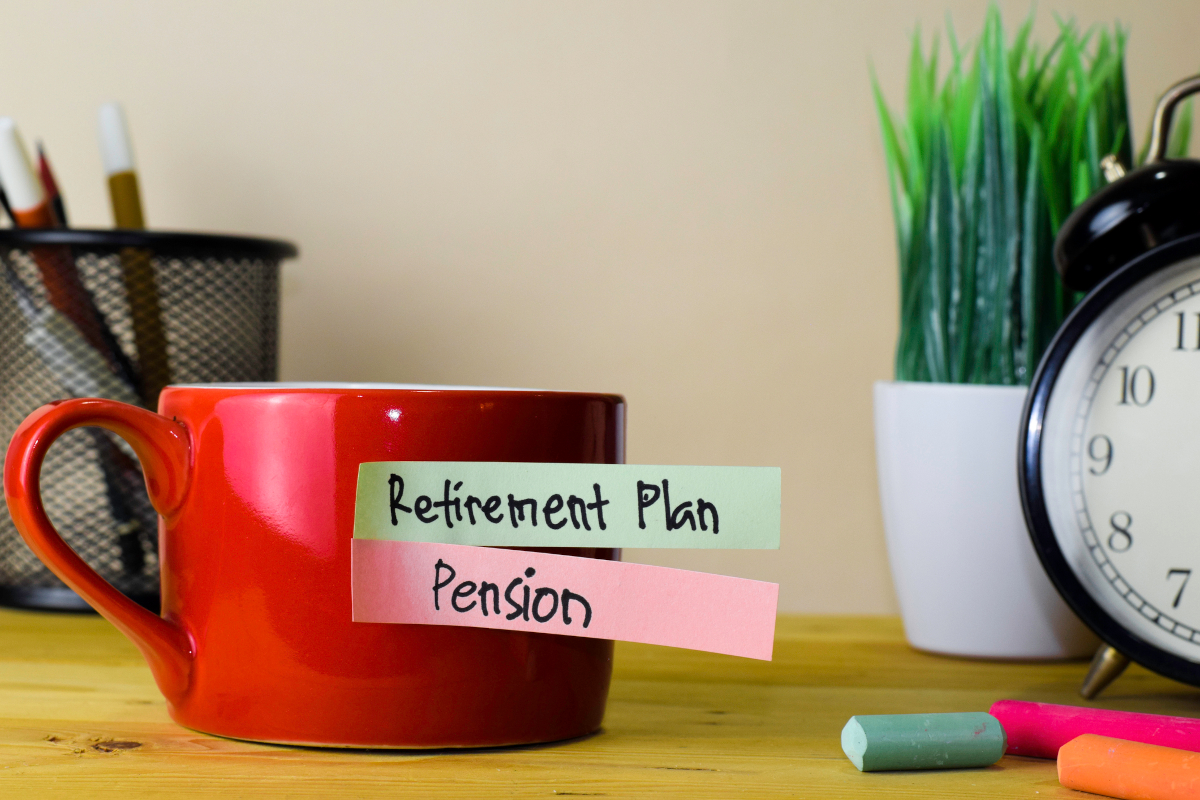As a small business owner, working for yourself means you don't have access to retirement benefits that large companies offer their employees. This means you have to be responsible for your own retirement plan.
According to SCORE, 34% of small business owners don't have retirement savings plans, while 40% are not confident they'll be able to retire before 65. These statistics aren’t very encouraging, so that’s why we’re writing this article - to empower and educate business owners on what they can do to plan for retirement.
Therefore, it's vital that while you work at growing a successful business, you also develop a retirement plan that safeguards your future.
In this article, we will discuss retirement planning for small business owners and share tips on diversifying your retirement savings.

Planning your exit strategy
The time to start preparing for your retirement is now. The steps you take will influence how effective your exit strategy is and how comfortable your retirement years will be. Here are some steps you can take right now to prepare for retirement.
Have a clear picture of your goals
The first step is looking at your records and seeing what the numbers say. This helps you create a retirement model with simple plans and a savings road map. Avoid common mistakes like overestimating the cost of future static income and underestimating the cost of future living expenses.
Your answers to some of these questions can help shape your decision-making:
- What age would you prefer to retire, and how much must you save monthly to make it happen?
- What are your projected sources of retirement income?
- Where are you based, and how does that influence your expenses?
- Have you factored in both the future cost of living and the added cost of possible health issues?
Develop a succession plan
A 2021 survey revealed that only 34% of small business owners had a documented, communicated, and robust business exit strategy.
Succession planning should be considered at every phase of the business. So, when the time comes for the transfer of ownership, there's a fully trained, agreed-upon replacement in charge of running the business. Succession planning is a long and continuous process, but taking time to prepare ahead will help avert some future headaches.
First, you want to list potential candidates who would be interested in taking over the affairs of your business. It could be a partner, a vendor, a family member, an employee, or a group of employees. Evaluate their readiness and capability to purchase your business. Then, consider the amount of work that needs to be done ahead of time to ensure your successor is well-prepared to take control.

Surround yourself with a support team
Implementing a retirement plan for you and your employees requires an in-depth knowledge of tax law and investment. Surrounding yourself with capable professionals to advise you on crucial subjects will help you plan effectively for every step.
Your planning team should include each of the following:
- Financial advisor: This is a professional whose expertise is to advise on matters relating to investment and retirement planning, business valuation, succession planning, and employee benefits, including regular financial decisions such as cash flow, debt, and risk management.
- Certified public accountant (CPA): Recruiting a CPA ensures your taxes are done correctly and reduces tax liability. A CPA will also advise you on the best retirement plan based on how much you want to contribute.
- Business attorney: they will deal with all legal aspects of your business and ensure that your contracts and business entity are structured and executed correctly. A business attorney will also check to see if your current business format is the best option and update you on any changes.
Get an accurate business valuation
As a small business owner planning for retirement, having a business valuation done is essential. One major mistake a business owner can make when planning for retirement is to overestimate the value of their business, especially if they are relying on the sale to fund their retirement. For example, the value of a business may drop if the company's success depends on the retiring business owner's personal relationships with customers.
Therefore, it's essential to get a comprehensive business valuation from a certified financial planner who will account for different circumstances, including market fluctuations and projections. If you'd like to better understand how business evaluation works, you can read our guide on how to value a business.
Plan for unforeseen circumstances
Life isn't predictable; unforeseen circumstances like sudden death, accidents, or illness can happen at any time. Having a will that dictates who takes over ownership of the business and ensures the well-being of a living spouse, elderly parent, or dependent children is the responsible thing to do.
Since there are tax implications involved, it's advisable to seek the counsel of an estate planning attorney to guide you appropriately.

How to fund your retirement in the US
Small business owners can pick from different types of retirement plans under the federal tax code. The right retirement savings plan for you will depend on factors like how much you can contribute each year, the size of your company, and how many administrative duties you're willing to take on.
The SIMPLE IRA
A savings incentive match plan for employees, also known as SIMPLE IRA, is a retirement plan designed for sole proprietors and businesses with a maximum of 100 employees.
SIMPLE IRA is a cost-effective way to contribute to your retirement and to that of your employees. They are subject to maximum contribution limits, which may change yearly, so check the IRS website for updates. Annual employer contributions are compulsory and tax deductible.
For SIMPLE IRA, the small business owner must make either a nonelective contribution equal to 2% of their annual compensation or a 100% matching contribution of up to 3% of employee compensation, but you can not provide both. Depending on the IRA provider, investment options may include bonds, individual stocks, ETFs, and mutual funds.
As of 2022, SIMPLE IRA allows employees to defer up to $14,000 of their salary, pretax, which rose to $15,500 in 2023. Those who are 50 years and above can defer more by taking advantage of a $3,500 catch-up contribution, pushing their total contribution to $19,000 in 2023.

The SEP IRA
The simplified employee pension (SEP) is another small business pension plan to which employers and employees can contribute into an individual retirement account (IRA). As of 2023, it allows employees to make a contribution of up to $66,000 or 25% of their income, pretax.
The SEP retirement plan also allows small business employers to make tax-deductible contributions for their eligible employees. Also, employees don't have to pay taxes on employers' contributions until they retire and withdraw their distribution from the plan.
The SEP option is available to most small businesses regardless of the number of employees or the business entity. As a business owner, SEP allows you to choose how much to contribute on your employees' behalf each year. This way, you're not locked into making a contribution if your business underperforms for the year.
Under SEP, business owners are also treated as employees and can make employee contributions to their own accounts. So, if you want a retirement plan with greater flexibility and larger contributions, you might want to settle for the SEP plan over the SIMPLE plan.
Traditional IRA, Roth, and Solo 401(k)s
Small business owners are not mandated to provide retirement benefits to their employees. If you want to save for your retirement without including your employees, you can do so through a traditional IRA or Roth, available to anyone with an employment income. You can make contributions on your spouse's behalf to an IRA.
If you opt for a Roth IRA, your contributions will be subjected to federal income tax, but your distributions will be tax-free. Your contributions are free of tax for traditional IRAs, but you'll pay tax on your distributions when you retire. In 2023, the most you can contribute to an IRA is $6500 or $7500 if you're 50 years and above.
Finally, you can take advantage of a Solo 401(k) if your business has no eligible employees besides your spouse. You can contribute to your retirement savings as an employer and an employee. Those contributions can be diversified into investments that grow tax-deferred until withdrawn in retirement.

FAQs
What is the best retirement plan for a business owner?
The retirement plans available for small business owners include the savings incentive match plan for employees (SIMPLE) IRA, simplified employee pension (SEP) IRA, Solo 401(k), Roth IRA, and Traditional IRA. Each has its benefits, limitations, and features, so choosing one that fits your retirement goals and business structure is vital.
What is the best way to manage retirement money?
You can manage retirement money by diversifying your investments and allocating funds across various asset classes, like bonds, stocks, real estate, mutual funds, and alternative assets.
Which retirement plan is best for the self-employed?
Self-employed individuals should choose a retirement plan that best fits their needs and goals. Some options include:
- SEP IRAs work best for business owners who don't plan on hiring employees in the future and want to maximize their retirement contributions
- SIMPLE IRA plans are best suited for business owners who expect to hire more than a few additional people.
- Traditional IRA or Roth IRA plans work best for business owners with relatively low self-employment income.
- Solo 401(k) plans are best for business owners with no eligible employee other than their spouse.
Can you get a pension as a business owner?
Yes, you can get a pension as a business owner by taking advantage of self-employed retirement plans such as SEP IRA, SIMPLE IRA, Solo 401(k), and Traditional or Roth IRA to save up for retirement.
The bottom line: planning your retirement

For small business owners, retirement planning can be a daunting process. But with a proactive approach and proper guidance, you can secure the comfortable retirement you deserve.
By visualizing your retirement goal, building a support team, valuing your business, developing a succession plan, and preparing for unforeseen circumstances, you'll be on the right path to reaping the benefits of your entrepreneurial success.
When it's time to retire and initiate your exit strategy, consider the tax implications, as that's also an essential part of selling a company. Read our article on tax considerations when selling a business for helpful advice.
When you're finally ready to sell your business, you can advertise your business on our site and find the right buyer to take over your business so you can enjoy retirement.